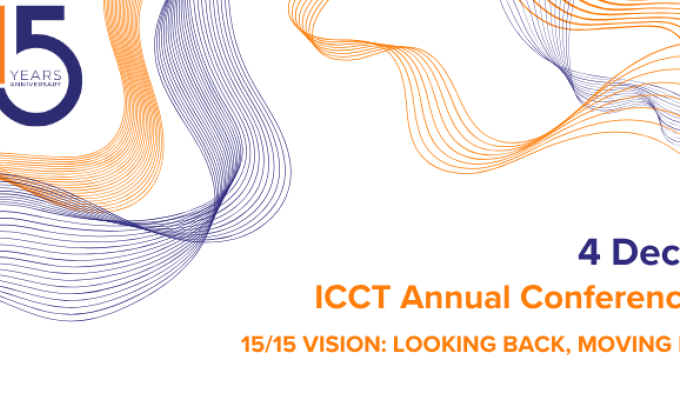Some terrorist groups commit a range of sexual and gender-based violence (SGBV) crimes, such as rape, sexual slavery, enforced marriages and human trafficking. For such groups SGBV crimes can serve as a tool to advance strategic objectives, as a tactic to instil fear among the civilian population, and as a method to support financing and recruitment. Not only has the Islamic State in Syria and the Levant (ISIL)/Da’esh committed such crimes on a large scale, the Taliban are also targeting and persecuting women and children and more recently, and there is credible information that al-Shabaab uses various forms of sexual violence as its modus operandi to subjugate the civilian population within its control. Since 2011, Boko Haram has continued to abduct women and girls in northern Nigeria, subjecting them to various forms of sexual violence, including rape, forced marriage and forced pregnancies. In March 2024, 50 women were kidnapped in Borno, a state in Nigeria where both Boko Haram and the Islamic State of West Africa Province (ISWAP) are active.
This analysis briefly examines the challenges of holding terrorists accountable for SGBV crimes and different pathways to accountability. It further explores Nigeria’s recent approach and discusses its implications for the broader effort to prosecute such offences when committed by terrorists.
The Challenges of Accountability
Impunity for SGBV crimes remains the norm, and accountability remains challenging for many reasons. First, many victims do not report crimes out of fear, shame or stigmatisation. Men and boys who are victims of SGBV crimes are even more underreported and overlooked because of taboos and notions of masculinity. Yezidi women and girls who have been enslaved and impregnated by ISIL/Da’esh members suffer stigmatisation and are still facing difficulties being accepted back into their local communities. Similarly, returning girls and young women who have been kidnapped by Boko Haram face stigma and resentment from their family and the local community. Second, legal obstacles, such as the notion of consent and the need for corroborating evidence in some jurisdictions, further make it difficult to hold perpetrators accountable for SGBV crimes. At a practical level, countries in conflict or emerging from a conflict lack proper medical facilities to document SGBV crimes, and their justice sectors may struggle to handle these cases effectively.
Pathways to Accountability
Accountability for SGBV committed by terrorists can be pursued in different ways, depending on the circumstances and legal framework available in a country. Many forms and acts of SGBV committed by terrorist groups can amount to war crimes, crimes against humanity, or genocide. Depending on the contextual elements of each core international crime, SGBV can be part of a widespread or systematic attack against a civilian population. It can be carried out within the context of armed conflict, or with the intent to destroy in whole or in part a national, ethnic, racial, or religious group.
Many forms of SGBV are explicitly criminalised in articles 6 and 7 of the Rome Statute of the International Criminal Court. Crimes such as murder, enforced disappearances or persecution can include SGBV crimes, or amount to torture or outrage upon personal dignity. However, the prosecution of terrorists for SGBV using the core international crimes framework is only available if a country has criminalised core international crimes in their domestic legislation. In fact, in several European countries, women who have travelled to Syria or Iraq to join a terrorist group have been prosecuted for SGBV crimes such as rape and (sexual) slavery as a crime against humanity, war crime, or genocide. Sweden and Germany have prosecuted several women for such crimes. Currently Belgium, Netherlands and France are investigating cases against female returnees that are allegedly involved in holding Yezidi women as slaves. A few observations can be drawn from this emerging practice in several European countries. To date, the majority of individuals prosecuted for SGBV crimes have been women, not men. The crimes that the women are convicted for are not always sexual and gender-based violence crimes; some have been convicted for slavery. The more accurate description is sexual or gender-based violence, or gender-based violence as an umbrella term that encompasses sexual, physical, or mental violence. This is also consistent with the recently implemented policy on gender-based crimes by the Office of the Prosecutor of the International Criminal Court. Finally, several women are being prosecuted for membership in a terrorist group, as well as for their involvement in aiding and abetting their husbands to commit SGBV crimes.
Another option to achieve accountability is to prosecute terrorists for sexual violence and other forms of gendered violence under domestic criminal laws. This could be relevant in countries which may not have criminalised core international crimes. However, the definitions under domestic law may be narrow and not capture the full extent of the crimes that have been committed. Furthermore, the evidentiary rules and procedures may require medical corroboration. Even where such evidentiary challenges can be overcome, focusing solely on SGBV crimes overlooks the circumstances in which SGBV is used to advance the group's strategic objectives or spread fear among the population by terrorists or terrorist groups. In such a situation, the court could take into account the terrorist context in which the crimes were committed as an aggravating circumstance during sentencing.
When terrorists engage in trafficking, as credible evidence shows Boko Haram often does, or conduct SGBV crimes as a source of financing, such acts can fall under the International Convention against the Taking of Hostages (1979) and the International Convention for the Suppression of the Financing of Terrorism (1999). While countries may use their counter-terrorism laws to address SGBV offences like rape due to the bodily harm caused, most countries do not specifically classify rape and other forms of SGBV as terrorist acts in their legislation. Tunisia and Gambia are exceptions, explicitly criminalising rape as a terrorist offence.
Finally, UN Security Council Resolutions 2331 (2016) and 2388 (2017) already recognised the linkages between human trafficking, sexual violence in conflict, and terrorism. This also offers an opportunity to prosecute for human trafficking. State parties to the Palermo Protocol to the Convention on Transnational Organized Crime are under the obligation to criminalise human trafficking and seriously investigate trafficking. Sweden has prosecuted women for taking their children to the conflict zone as human trafficking and as an offence against liberty and peace, as well as for the war crime of enlisting child soldiers. Camilla O. was convicted of the former offence for taking her two underaged daughters to Syria and allowing one of them to marry an ISIL/Da’esh fighter, whereas Lina I. has been convicted for the war crime of enlisting a child soldier for taking her son to Syria where he died on the battlefield.
The Nigerian Experience
At the outset, it is important to note that Nigeria operates a federal system, and all terrorism-related offences fall within the jurisdiction of the Attorney General of the Federation through the office of the Director of Public Prosecution of the Federation. As investigators and prosecutors tackled the activities of Boko Haram and ISWAP, they initially focused on pursuing cases related to membership in terrorist groups, concealment of information, providing support, and similar offences under the Terrorism Prevention Act (TPA), which was amended most recently in 2022. Given the intricate dynamics of the ongoing conflict, these charges were easier to prosecute and did not necessitate additional strain on the already limited resources of investigators and prosecutors. More substantive and underlying crimes of rape, abduction of women and girls, forced marriage and other sexual violence committed in the context of terrorist activities were overlooked for a variety of reasons. First, there was a need for increased technical knowledge of the interplay between SGBV and terrorism and so these crimes were not immediately considered terrorism-related offences within the meaning of the TPA and its amendments. Second, sexual offences such as rape fall within the jurisdiction of Nigeria’s thirty-six federating states plus the Federal Capital Territory (FCT), Abuja. Each of these states, along with the Federal Capital Territory (FCT), possesses the authority to enact legislation concerning sexual offences. Consequently, any such offences occurring within the jurisdiction of a specific state can only be investigated and prosecuted by that federating state. As a result, federal prosecutors handling terrorism cases did not perceive they had the jurisdiction to prosecute the sexual offences perpetrated by Boko Haram and ISWAP members, even if they desired to do so.
This raises the question of why state prosecutors did not oversee these sexual offences. The reality is that the evidential threshold required to prove crimes related to sexual violence can be very high and, at times, deemed unreasonable. For example, until recently, in certain states' penal codes, the prosecution had to establish penetration and often required corroboration to prove rape, making it a daunting task. Prosecutorial strategies heavily relying on victim or witness testimony proved unfeasible due to the absence of victims, many of whom were still located within Boko Haram and ISWAP enclaves. The convergence of these factors led to an impunity gap. From 2011 to 2017, federal prosecutors filing cases under the initial two terrorism legislations did not incorporate SGBV perpetrated by Boko Haram and ISWAP because they were not considered terrorism-related offences, while state prosecutors did not address sexual offences by these groups due to the insurmountable evidentiary challenges.
The Tide Turns
Between 2016 and 2018, with the support of international and local partners in capacity-building and technical assistance within the Nigerian justice system, accountability for SGBV crimes by Boko Haram and ISWAP gained greater attention. During the 2018 mass trials of Boko Haram suspects, an early opportunity emerged to prosecute other offences in addition to membership of a terrorist organisation. A defendant confessed to his participation in the 2014 abduction of the Chibok girls, resulting in a 65-year sentence. While this case focused on the abductions and did not address SGBV crimes connected to the abductions, it opened the door to exploring SGBV offences in future investigations. Consequently, by 2019, the prosecutors had charged another defendant in the case of Federal Republic of Nigeria v. Umar S. for SGBV crimes. In addition to charging him for membership of a terrorist organisation, the defendant was an accessory to the kidnapping of a Chibok girl who he forcibly married. This case is still pending at the Federal High Court in Abuja and is yet to be concluded.
In preparation for the 2023 trials of Boko Haram suspects, federal prosecutors uncovered evidence against a defendant, Suleiman G. (the indictment and judgment are on file with the authors). The evidence, which consisted of his confessional statement and witness statements, demonstrated that, during the terrorist group's activities in the Lake Chad region, he forcefully married and impregnated two girls who had been abducted by the group. Bolstered by the earlier 2019 indictment of Umar Suleiman, the federal prosecutors amended the charges against Suleiman Garba Mohammed to include six counts of SGBV crimes committed against the two girls to address conduct which could be qualified as forced marriage, forced pregnancy, rape, and sexual slavery and noting them as acts of terrorism because of the context in which they occurred and the group’s objectives.
he charges in the case were drafted to highlight the coercive environment of Boko Haram’s enclave, the Sambisa forest, and the girls’ captivity. This approach aimed to invalidate any notion of consent, emphasising that the victims were held against their will. The charges regarding forced marriage and rape highlighted the fact that the defendant imposed conjugal associations and marital relationships with the girls, engaging in unlawful sexual intercourse with them. The case summary submitted into evidence also underscored that such acts of sexual violence were integral to Boko Haram’s operations as a terrorist group, classifying them as acts of terrorism under the TPA. Furthermore, despite not participating in the initial abduction, the defendant knew that the girls were kidnapped by members of his group. The defendant’s actions – taking the girls as “wives,” paying dowries, and engaging in sexual relations without consent – demonstrated a clear continuation of the girls’ captivity and exploitation. He was charged and convicted of being an accessory to kidnapping after the fact. By charging him with this specific crime, the prosecution acknowledged his active role in perpetuating the crimes and maintaining the oppressive environment fostered by Boko Haram.
The prosecutors’ innovative use of the TPA to address underlying SGBV crimes was essential because the Rome Statute has not been implemented and thus international crimes could not be charged in Nigeria. Additionally, jurisdictional constraints prevented the use of the penal code or other relevant domestic laws in the federal court. However, by charging these crimes under the TPA, this approach sends a powerful message about the gravity of SGBV within the context of terrorism. It emphasises that such acts are not merely isolated or opportunistic incidents but are deliberate strategies employed by groups like Boko Haram to further their ideological and operational goals. Boko Haram uses women and girls as sex slaves to procreate and for domestic servitude, reinforcing the group’s objectives and operational strategies, which has been highlighted in a recent CTED study as one of the dimensions of SGBV linked to terrorism. The charges thereby align with the broader objective of the TPA to combat terrorism in all its forms, recognising the linkages between SGBV and terrorism. In the absence of the ability to prosecute for international crimes, the prosecutors’ reliance on the TPA was a pragmatic and necessary decision. It allowed them to pursue justice within the existing legal framework, ensuring that the crimes did not go unpunished. This case could serve as a precedent for how justice sector actors can adapt to address complex crimes that overlap multiple legal frameworks, such as terrorism and international criminal law.
Victims’ Access to Justice and Participation
In many countries, the criminal justice process for addressing crimes by terrorist groups, including specialised counter-terrorism courts and tribunals, often excludes victim participation. Victim participation in such proceedings is important as it affirms their right to be acknowledged as victims of terrorism, offering them opportunities to request reparations and essential support services. In the case against Suleiman G., the evidence included testimonies from two of his victims against whom he committed acts of SGBV. However, they were not required to testify in court due to the defendant’s guilty plea. While their presence could have offered them a form of participation, logistical challenges, such as their distance from the trial venue, made their physical participation in court impractical. The prosecutors weighed the value of insisting on the victims’ presence, especially given that the necessary resources for trauma-informed court participation were not yet in place, and the defendant did not contest the charges. In light of the varied challenges and the limited value that their participation would have held for the victims in this case, the prosecutors’ decision aligned with one of the overarching principles of the Murad Code: “Add value or don’t do it.” This principle of adding value might lead to different decisions in other cases, where victim in-court testimony and participation could be crucial.
In any situation, it is essential to evaluate the modalities for victim participation with the goal of enabling participation in the process. This involves assessing the potential impact of their testimonies on the case outcome, ensuring that adequate resources and support systems are in place to protect and assist them, and implementing a trauma-informed approach to minimise re-traumatisation. Additionally, it is important to consider the availability of alternative means, such as video conferencing, to enable victim participation in circumstances where physical participation is not feasible.
Way Forward
There is no one-size-fits-all approach when it comes to prosecuting SGBV crimes committed in the context of terrorism. SGBV crimes can be prosecuted by availing different legal frameworks and sometimes in different jurisdictions, but also by applying different modes of liability. The choice depends on the specific context and available legal frameworks. In Nigeria, the first conviction of a member of Boko Haram for explicitly using the act of rape as a terrorist offence is promising. The Nigerian experience of using the TPA to prosecute crimes that are simultaneously atrocity crimes not only recognised the severity of the offences, but also highlighted the systematic and coercive environment in which they occurred. This approach ensured that justice was pursued despite the limitations posed by the absence of a law implementing the Rome Statute and jurisdictional constraints, setting a significant precedent for future prosecutions of similar crimes. The judge’s recognition of the linkage between SGBV and terrorism further bolstered the prosecution’s case. In particular, the judge noted that the defendant’s remorse could not negate the aggravating factors of the case, and the repercussions of his actions were far-reaching, impacting both the victims and the “fabric of our society.” The defendant was sentenced to 345 years in prison, with the terms for each count running concurrently. Notably, among all the terrorism-related offences the defendant was charged with and convicted of, the SGBV crimes each received a 40-year prison sentence, which is higher than the sentences for the other terrorism-related offences.
Yet there are lessons to be learned and this successful approach is not without limitations. The potential for uncooperative defendants in future cases necessitates the development of robust alternative evidence-gathering strategies that are not reliant on the testimony of defendants or on witnesses whose in-court testimony may be difficult to facilitate. Additionally, the challenges associated with evidence collection, particularly in conflict zones, demand continued focus on innovative solutions. Moving forward, two key areas require focused attention. First, strengthening investigative capabilities to effectively collect and analyse evidence of SGBV when committed by terrorists is paramount. And second, fostering a dedicated pool of legal expertise amongst prosecutors and judges equipped to handle these complex cases is crucial.
This article represents the views of the author(s) solely. ICCT is an independent foundation, and takes no institutional positions on matters of policy unless clearly stated otherwise.
Photocredit: Doidam 10/Shutterstock










